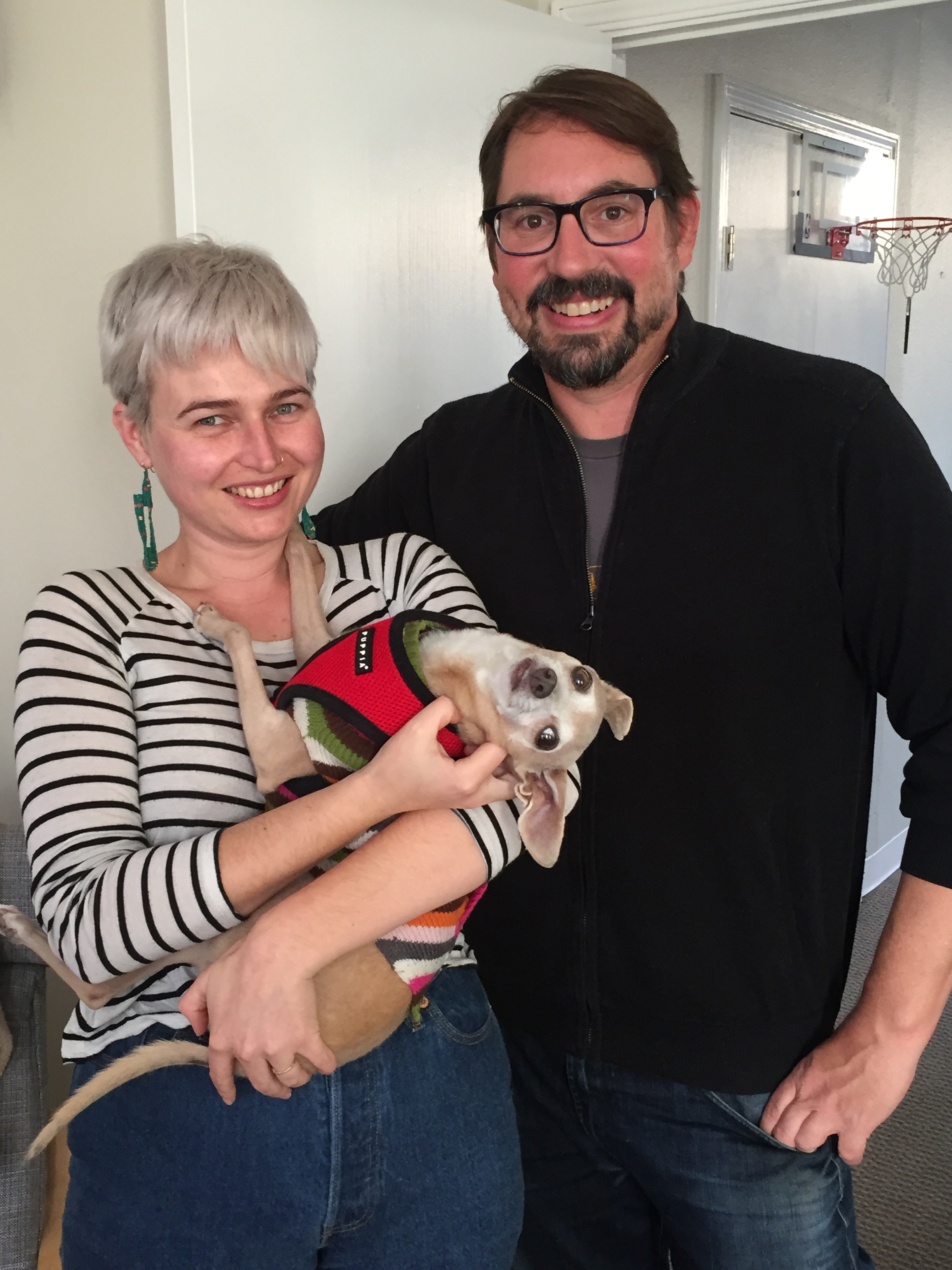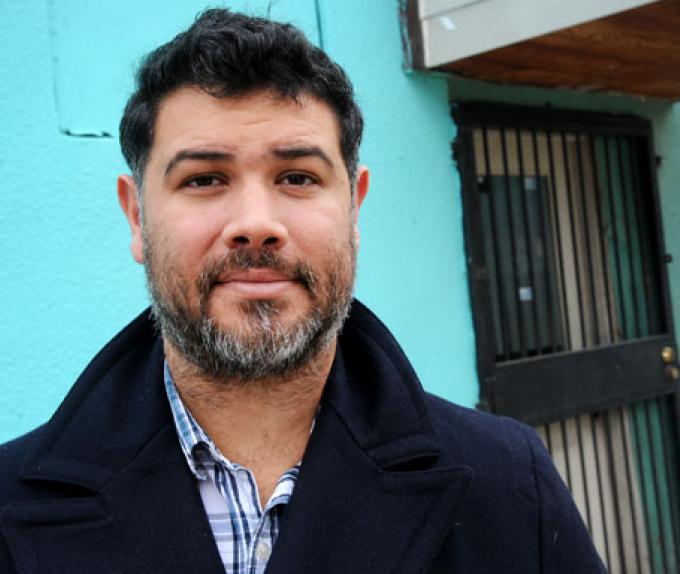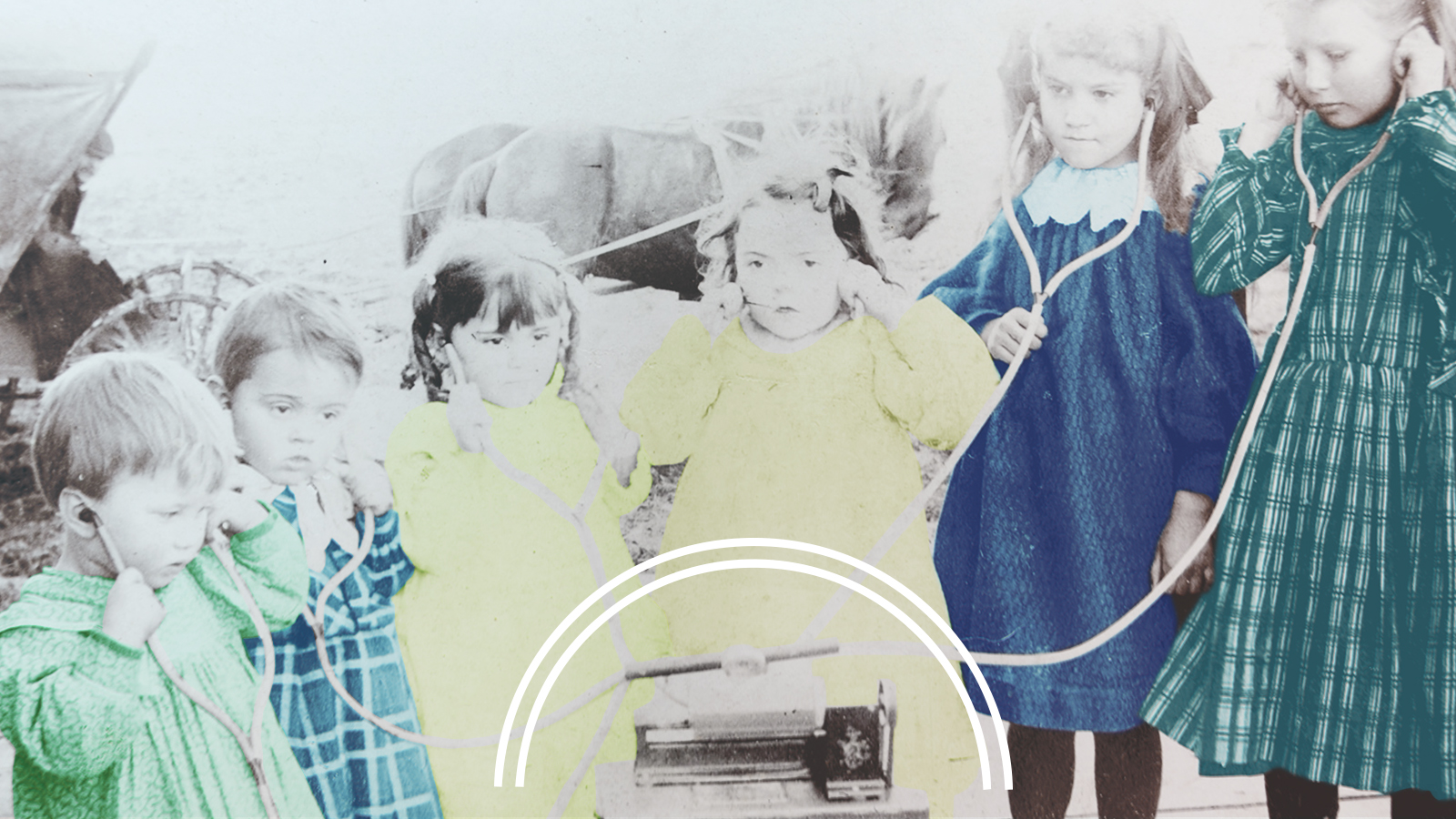Fiction in a Snap
"Will people be able to tell what is fact and what is fantasy?"
"Why do we need fiction in our radio show?"
"Won't listeners revolt?"
It was the end of a long story meeting at Snap Judgment, the national storytelling radio show, and everyone was on edge. Producer Eliza Smith was pitching a fiction story, "The Miniature Wife," by Manuel Gonzales. It starts out with an experimental scientist who accidentally shrinks his wife. When he can't or won't unshrink her, she takes matters into her own very tiny hands. Executive Producer Mark Ristich liked it, but the rest of the room wasn't having it. "It could undermine every bit of trust we worked to establish with our audience," someone argued. The idea was almost killed until producer Nancy Lopez saved it with one sentence: "This story is an allegory about the minimization of women." The lightbulb went off for the group. Using fiction would give them another way to highlight some kind of truth. Now Eliza and Mark had to work with Manuel Gonzales to adapt his story for radio and create that same feeling Eliza had when she read it on the page.
What follows is a conversation between the three of them about their process of selecting, adapting, and casting “The Miniature Wife” for Snap Judgment.
Eliza: Here’s the thing: Making a literary piece “work” on the radio is pretty hard. We don’t want to record an actor reading the story off the page. We aim to keep as much of the literary goodness and integrity of the story as we can while making a fun-to-listen-to radio play.
Manuel: I think one of the elements of “The Miniature Wife” that allowed it to work so well as a radio play is that it has a strong main character voice, which, without any visual aid, allows an image of the character, her world, and her fraught situation to come to life.
Mark: Manuel left us a lot of wiggle room: we could add scenes and build in dialogue.
Manuel: An adaptation should be an extension of the original story--one that explores small, pivotal moments in a new way.
Eliza: Yeah, for instance, in the original story, the husband suspects the wife of cheating. She’s not. In our story, we created a scene in which he actually finds her in a negligee and with tousled hair in the bedroom of the dollhouse he’s built for her. An argument ensues.
Mark: Our favorite thing about Manuel’s original story was the voice of the narrator. At first, we toyed with the idea of doing the entire play in scenes with dialogue just between the husband and wife.
Eliza: I love Manuel’s original writing, and I knew we just had to find an actor to breath life into the role of the omniscient narrator.
Mark: First, we tried a male narrator. But, as Nancy pointed out in pitch, the main character of this story is the wife. Ultimately, we wanted our audience to be on her side, not her husband’s.
Eliza: We needed a strong, yet nuanced, female voice. So we picked Thao Nguyen of San Francisco’s Thao and the Get Down Stay Down. We love Thao. We’re big fans of her music--she’s a great singer, performer, and lyricist--and we love her voice. She has rock star coolness, but with a great amount of depth, and she can get pretty dramatic when we need her to.
Mark: We wanted her to start out a bit detached and get more and more emotional as the situation in the story grew increasingly out of hand.
Manuel: One of the biggest differences I noticed between the short story I wrote and the radio play adaptation was the tangible presence of the miniature wife herself. In the story, the wife is an overly large presence, but she’s never given a voice, and the reader never sees this world from her point of view; it is all told (misleadingly) from the husband’s point of view. While this works well for a short story, where the point of the story is to live in the mind of the narrator and to slowly come to realize his self-delusion, a radio play requires scenes that involve characters interacting.
Mark: Eliza played the Miniature Wife because she’s good at screaming and laughing like a witch.
Eliza: I’m going to take that as a compliment. But seriously, Manuel has a point: with radio plays, you have to take the literary and make it literal.
Manuel: When Snap adapts my work, there are times when the characters do not sound the way I personally imagined them sounding. It’s always a shock to hear another voice inhabiting these words. That being said, the actors always seem to capture the intent and color of the characters they’re playing.
Mark: As we work with our actors, we find moments to improvise, improve dialogue, and figure out the rhythm of the piece. We can spend anywhere from a half-hour to two or three hours in the studio, perfecting lines, rehearsing scenes, and nailing down our final dialogue.
Eliza: We end up doing a lot of pickups because, ultimately, we have to go through several edits. No matter how well you think you’ve written something, it doesn’t matter unless it has a flow and is coherent.
Mark: This is where our sound team comes in.
Eliza: Let the record show, Pat Mesiti-Miller is a wizard.
Mark: He did the sound on this piece, plus the original score. And we’re so lucky he did--he’s our lead engineer, and he’s got a great sense of story. He knows when sound can replace dialogue, and he was able to go into this script and figure out how to use music and foley to move scenes along, build tension, and provide a heightened sense of drama.
Eliza: And context. Sound and music are about 50 percent of a radio play, at least for us, anyway.
Mark: For example, there’s this scene, at the end of the play: The husband discovers his wife has built herself a crude, scary-looking camp in the living room out of tiny things, like sardine cans. She’s got flies on stakes (paper clips) surrounding this camp. And she’s changed, sort of gone feral. She’s wearing scraps of fabric, and she looks totally transformed.
Eliza: She is totally transformed. What Pat does here is create a sense of foreboding with the music. He slows things down with a sort of primal, but distorted, bass beat. It suggests a heartbeat--perhaps the husband’s--and also the wife’s intensity. We know as an audience that we should be scared of her.
Mark: This is what we loved about Manuel’s story--the total switch of power between the man and wife.
Eliza: That’s what resonated with our editorial group, and that’s the one thing we wanted to highlight. Pat helped us do that in a big way.
Mark: Ultimately, this is still one of my favorite plays we’ve ever done. We produced it over a year ago. I still love it because the marriage of Thao’s voice, Manuel’s story, and Pat’s score is pretty perfect.
Eliza: In your humble opinion. You know, our listeners aren’t always going to get what we’re trying to do. That’s the nature of doing something experimental. But I love this play, too. It goes beyond escapism and actually accomplishes something. It’s entertaining and it has weight to it.
Manuel: The adaptation gives the story a new and different and compelling life, and it bolsters my hope that the story I wrote was rendered well enough to become its own realized world, inhabited by actual people with actual voices acting in ways I had only begun to imagine on my own.








